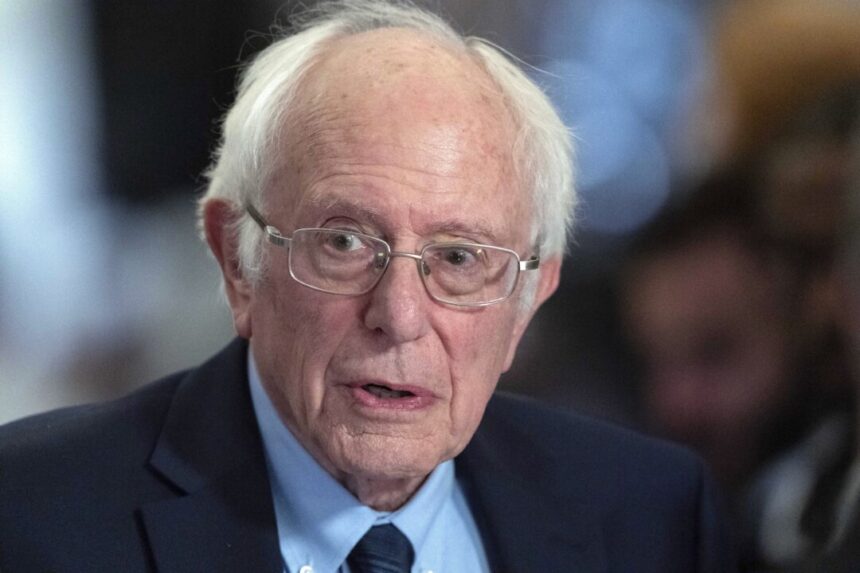The president-elect has recently suggested implementing a temporary 10 percent cap on credit card rates.
Senator Bernie Sanders (I-Vt.) has expressed willingness to collaborate with President-elect Donald Trump and his administration on capping credit card interest rates.
“While working Americans catch up, we’re going to put a temporary cap on credit card interest rates,” Trump announced at a Long Island rally on Sept. 18. “We’re going to cap it at around 10 percent. We can’t let them make 25 and 30 percent.”
This policy is likely to require action from Congress.
Sanders, who recently secured another term in the Senate, has expressed interest in working with the president-elect and his team to limit credit card interest fees, criticizing current rates as “usury.”
This is not the first time Sanders has addressed this issue.
“Today’s modern-day loan sharks are no longer lurking on street corners breaking kneecaps to collect their payments,” stated the Vermont independent at the time. “They wear three-piece suits and work on Wall Street, where they make hundreds of millions in total compensation.”
The banking industry has previously opposed rate cap proposals.
A spokesperson for the American Bankers Association mentioned shortly after Trump’s announcement that these measures “would result in the loss of credit for the very consumers who need it most” and push consumers to alternative, less regulated and riskier lending instruments.
Lawmakers from both parties have advocated for regulating the industry’s practices.
Senator Josh Hawley (R-Mo.) suggested capping rates at 18 percent as part of legislative efforts in September 2023.
“The government was quick to bail out the banks just this spring, but has ignored working people struggling to get ahead. Capping the maximum credit card interest rate is fair, common-sense, and gives the working class a chance.”
The current administration has also dealt with credit card companies.
President Joe Biden initially proposed a rule in February 2023 to cap credit card late fees at $8. However, a federal judge in Texas blocked the White House’s measure to restrict these companies from charging clients late fees higher than $8.
Financial experts predict a gradual decline in credit card interest rates as the Federal Reserve is adjusting its monetary policy. The Fed implemented a quarter-point reduction to the benchmark federal funds rate, setting it in a range of 4.5 and 4.75 percent.
Despite expectations of falling credit card interest rates in the upcoming months, they remain high compared to historic levels since early 2022.
Please rewrite this sentence.
Source link







